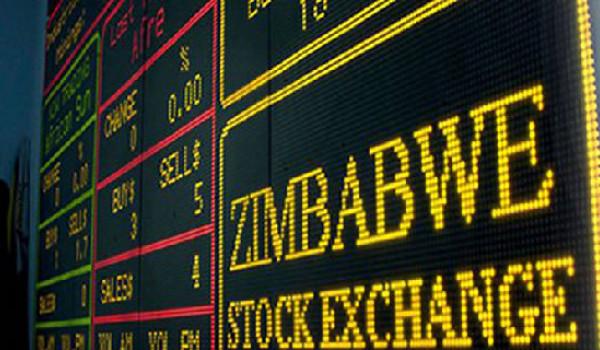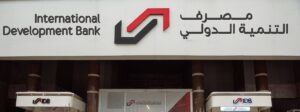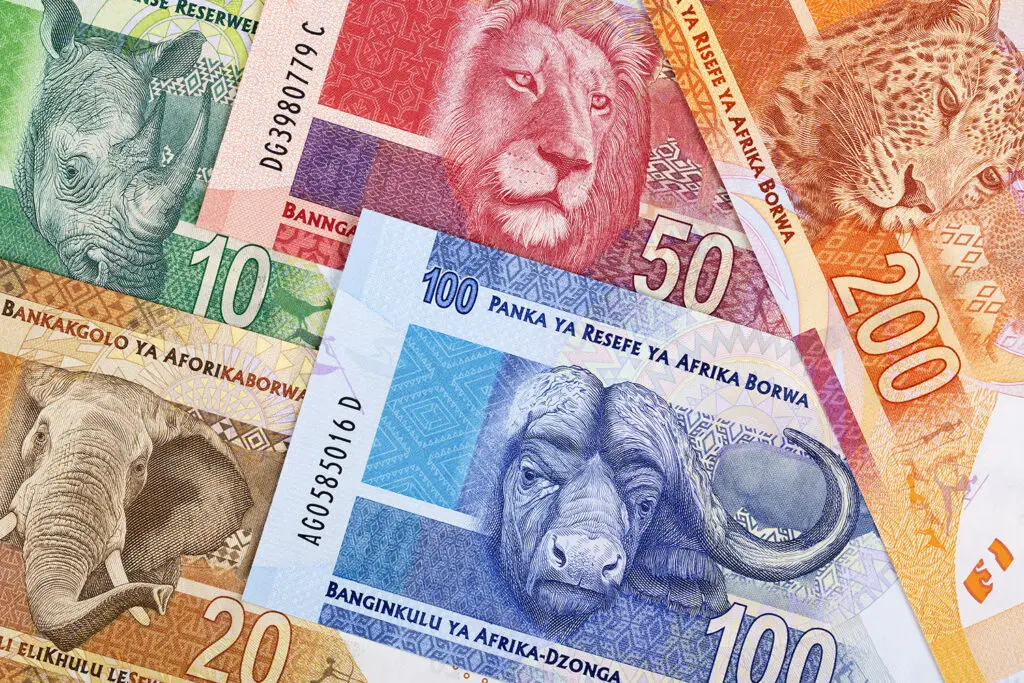- Africa Energy Bank secures key backing from Nigeria, Angola and Ghana
- AIM Congress 2025 gets a boost as International Development Bank signs on as gold sponsor
- African energy: Opportunities and challenges presented by Russia’s investments
- Africa’s smart farming push—a revolution or a mirage?
- BRICS summit in Brazil to focus on global governance reform
- Dedollarization: BRICS take on Trump and mighty dollar
- Trump’s second term: A rare opportunity for real African energy independence
- ‘Perfect storm’ in South Sudan demands urgent action – UN
Author: Laurence Sithole
I am a financial services professional with a strong background in diverse areas of banking. My skill set includes among others International Banking, Trade Finance, Commercial Lending, Customer Service, Finance, Banking, Corporate Finance, and Investment Banking. Africa is my home and I am passionate about its development,
The Ukraine invasion by Russia and the resulting conflict has created an economic vortex for the whole world.
Reports state that from the time the Ukraine invasion began at least 10 million people have been displaced from their homes creating a humanitarian crisis. The invasion is a cause for concern for African countries many of which have ties with Russia which lent them military support in their respective struggles for independence. Several of them like Zimbabwe abstained from voting against the Ukraine invasion out of fear of straining relations with Moscow.
The adverse effects of the Ukraine invasion stem from economic contagion resulting from globalization. Countries that were dependent on Ukraine and Russia for their exports will record lower exports and subsequently lower income. Prior to its invasion Ukraine had been a hub for education at a higher level for African countries.
Post the Ukraine invasion prices of commodities and …
The company is part of the JSE listed industrial mining and metals sector which is collectively worth ZAR 5.46 trillion or (US$ 360.11 billion). It is the fifth-largest company in that sector. The company produces iron ore from two mines namely Sishen and Kolomela in South Africa.
Kumba Iron Ore’s finances during 2021 were premised on 3 things namely what the company described as “disciplined capital allocation” which involved the cash payouts to shareholders on the back of the improved return on capital ratios. The second aspect that drove the company’s financials was what it called “value-focused growth”. The company enjoyed a higher-than-average price for its ores.
It reportedly earned an average forward on board (FOB) export price of at least US$ 161 per ton which was 18% higher than the benchmark during 2021.…
The services Zimbabwe paid for range from software, to professional and technical services like mining exploration, servicing of complex machinery, expatriate medical aid schemes and so on.
If the country was able to develop the capability to provide these services, it would not only save on the expenditure of foreign exchange it would also earn foreign exchange.
There are 16 countries that make up the Southern African Development Community of which Zimbabwe is a part. All these countries use and pay for the same services that Zimbabwe is paying for. If Zimbabwe were to become an exporter of services to all these countries in the SADC region alone and they spent on services roughly what Zimbabwe spends on services.
The country could potentially earn (15 member states multiplied by US$ 636 million) US$ 9.5 billion annually. Adding this figure to the foreign exchange earnings reported in the monetary policy statement …
The financial results of the company began with a report of the company’s ESG performance. What stood out the most from the company’s report is that the company achieved zero fatalities during its operations in 2021. This is most exceptional given the nature of mining operations which are for the most part dangerous.
Most if not all Anglo-Plat’s peers have reported reduced or reduced fatalities in their operations but not always a zero-fatality rate. This was attributable to what the company calls their Elimination of Fatalities (EoF) strategy. The strategy focuses on the most common causes of fatalities across Anglo American.
Its purpose is to use what the company calls “accumulated learnings from a wide range of fatalities” and use that data to take a more proactive approach to prevent incidents that result in the loss of life. The strategy has paid off resulting in an outlier performance of zero …
The global economy has come back strongly. So has inflation. Commodity prices are also making a strong comeback; however, their resurgence is causing stress in other economies.
Rising demand has pushed oil prices to a rising trend which may, in the long run, prove to be unsustainable. Food price inflation has reportedly reached the highest level since 2011. Further compounding the problem for households and businesses is the fact that in the United States consumer inflation has reached 5.5 per cent annually which is the highest it has been in 31 years.
Companies operating in Africa and the rest of the world need to consider these developments into their expectations and decisions. The question is how? How can companies inflation-proof, as it were, their finances to protect their viability?
Cash is always king in times of uncertainty and inflation. There are six ways that companies are well-advised to adapt to …
Adding debt of leverage to the capital structure of a company, also in the right instances can increase the return on equity and/or return on investment for shareholders. Chief executives of listed companies and their chief finance officers tend to wax lyrical about these metrics.
They do so for good reason because they are judged to either be doing a good job or poor job depending on whatever these numbers read. The better this metric looks the more likely a company executive can look forward to a fat bonus and pay package! In addition to being a tax shield for a company’s profits, debt can enhance the returns a company generates for its shareholders.
Take the following scenarios that take place under the exact same set of circumstances.…
Strive Masiyiwa, the executive chairman of Econet Wireless International has attained an almost mythical status in Zimbabwean and African corporate lore.
Fortune Magazine describes him this way:
…“Masiyiwa’s entrepreneurship has had a major impact in Zimbabwe, his home nation, and on the African economy more generally. Econet, the telecommunications firm he launched in the 1990s, helped pioneer mobile loans and cashless payments on the continent, sparking a wave of adoption that has expanded economic well-being for millions of unbanked people in Africa—while also helping Masiyiwa become a billionaire. Now based in London, Masiyiwa is a board member at Unilever and Netflix, among other big Western companies—helping each do business in Africa with local development needs in mind.
But his most urgent current role is as the African Union’s special envoy in charge of acquiring the materials to fight Covid-19. Masiyiwa spearheaded the creation of the African Medical Supply Platform (AMSP),
There is a lot of hype around the Zimbabwe Stock Exchange (ZSE).
For instance, it is said to have had the best performance of African stock market indices over the first nine months of 2020, according to a consolidated report by the African Markets platform. During that period the Zimbabwe All-Share Index, the main index of this financial market, grew by 612 per cent.
This was when values were calculated using local currency. When the values are calculated using US$ and Euros the market still posted some very impressive returns of 46.6 per cent and 40 per cent respectively. This implies that investors who made hard currency investments in African markets made the most money from their investments in Zimbabwe… A caveat is in order here because these are merely statistics…

In 2020, only Malawi and Rwanda had their stock markets post positive returns albeit marginal with returns of 6.8 …
UNCTAD World Investment Report 2021 specifically states that “Greenfield investments in industry and new infrastructure investment projects in developing countries were hit especially hard.”
These financial flows of investment dollars have deep-rooted implications for Africa in the sense that they are vital for sustainable development in less developed and poorer countries.
The decline in investment flows was disproportionately skewed towards developed countries where FDI fell by 58 per cent according to UNCTAD. Investment flows in developing economies fell by a moderate 8 per cent mainly because of resilient flows in Asia.…
Enock Godongwana, South Africa’s finance minister appeared at ease for a man delivering his maiden budget speech. A speech whose pronouncements can send the markets soaring or sinking. A lot was riding on this, but the man seemed casual and affable during the delivery of his address he occasionally addressed the members of parliament by name and spoke in his native Xhosa language.
A lot was indeed riding on his presentation today the 23rd of February 2022. The primary expectations of the speech from stakeholders are whether the treasury chief’s plan for 2022 will stimulate economic growth and foreign direct investment. Each South Africa needs urgently.
The finance minister began his address by affirming his commitment from his midterm budget speech to the reconstruction and recovery of the economy and by extension saving lives and livelihoods.
Very noble aspirations and themes. This message is needed by citizens who have grown …





